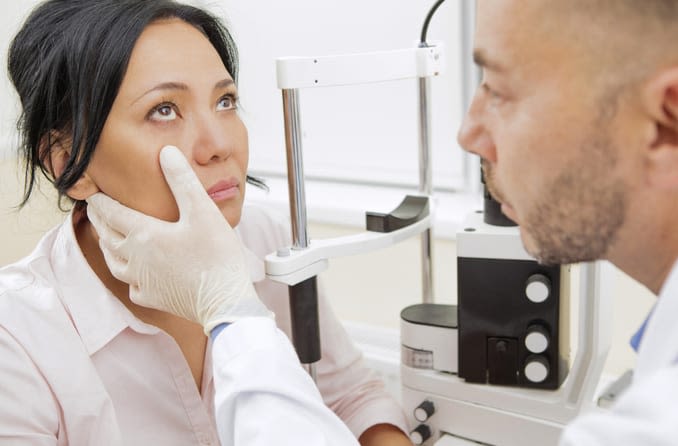Understanding the Duty of Your Eye Doctor in Keeping Vision
Understanding the Duty of Your Eye Doctor in Keeping Vision
Blog Article
Comprehending the Comprehensive Role of an Eye Doctor in Modern Eye Treatment
With advancements in technology and an increasing focus on preventive care, optometrists are integral in identifying and handling persistent eye problems, while also involving in very early illness detection. Just how do these responsibilities intersect with their function in promoting general eye health and wellness, and what does this mean for individual outcomes in a collective medical care setting?
Expanded Range of Technique
In current years, the duty of eye doctors has actually progressed dramatically, with lots of professionals currently accepting an expanded extent of method that expands beyond standard eye evaluations. This evolution mirrors the expanding acknowledgment of eye doctors as key healthcare service providers in the field of eye care. Their responsibilities now encompass a vast array of services, including recommending medicines for eye conditions, taking care of persistent eye diseases, and executing minor operations. This shift has been driven by improvements in optometric education, boosted medical training, and the boosting need for thorough eye treatment services, especially in underserved locations.
Further, optometrists are currently more associated with joint care, functioning carefully with ophthalmologists, main treatment doctors, and other medical care professionals to ensure holistic person care. This interprofessional collaboration is vital in taking care of complex cases that need a multidisciplinary technique. In addition, eye doctors are playing an essential duty in public health and wellness efforts, such as vision screenings and eye health education, intended at enhancing community health and wellness results.
The broadened range of method for optometrists not only boosts their capability to give detailed care but additionally attends to the expanding demand for easily accessible and effective eye care solutions, contributing to overall health care enhancements.
Very Early Illness Detection
Early detection of eye illness is increasingly becoming a prime focus in the expanded role of eye doctors. As key eye care providers, optometrists are uniquely positioned to identify very early signs of eye problems such as glaucoma, macular degeneration, diabetic retinopathy, and cataracts. This pivotal role is vital, as early diagnosis can dramatically boost the management and diagnosis of these conditions, potentially avoiding vision loss and enhancing patient outcomes.
Eye doctors utilize extensive eye exams to identify subtle modifications in vision and eye wellness. These examinations usually include analyses of aesthetic skill, intraocular stress, and retinal health. The capacity to acknowledge very early indicators of systemic wellness issues, such as hypertension and diabetes, through ocular indicators further emphasizes the significance of routine eye exams. Early treatment is not only valuable in maintaining vision but likewise in reducing health care expenses associated with sophisticated disease treatments.
Additionally, eye doctors play a crucial duty in person education and learning, highlighting the importance of regular eye examinations as part of overall health care. By cultivating an aggressive method to eye treatment, eye doctors contribute considerably to public health, guaranteeing diseases are caught and handled successfully prior to they can progress.
Advanced Diagnostic Techniques
Advanced analysis methods have actually reinvented the method of optometry, enabling practitioners to spot and monitor eye diseases with unmatched accuracy. These innovations have transformed the optometric landscape, allowing for much more advanced evaluation and intervention strategies. Technologies such as optical comprehensibility tomography (OCT) give high-resolution, cross-sectional pictures of the retina, facilitating early detection of problems like glaucoma and macular deterioration. This non-invasive method has actually come to be essential in contemporary optometry, using in-depth insights into retinal layers.
Another important improvement is electronic retinal imaging, which captures detailed sights of the retina using high-def cams. This technology is crucial in determining changes in retinal framework with time, consequently helping in the management of conditions like diabetic retinopathy. Visual field screening, boosted by computer-aided systems, permits specific mapping of a client's visual field, important in tracking and detecting glaucoma development.
Corneal topography, you could look here another noteworthy diagnostic device, generates detailed maps of the cornea's surface area. This is specifically useful in suitable call lenses and preparing refractive surgical procedure. These advanced analysis methods jointly enable eye doctors to offer proactive, targeted care, making sure far better client outcomes and strengthening their crucial role in eye health and wellness management.
Taking Care Of Persistent Eye Problems
Taking care of persistent eye problems is a cornerstone of optometric treatment that needs a detailed understanding of different ocular illness and their long-lasting effects. Optometrists play a critical role in tracking, managing, and diagnosing problems such as glaucoma, diabetic retinopathy, and age-related macular degeneration. These conditions, if left unattended, can bring about considerable aesthetic impairment or loss of sight, highlighting the essential value of recurring care and monitoring.
Optometrists utilize a variety of analysis devices, including optical coherence tomography (OCT), aesthetic area screening, and fundus photography, to evaluate the progression of these chronic problems. By very closely checking modifications in ocular wellness, optometrists can readjust treatment strategies to reduce disease progression. This may include suggesting drugs, recommending way of life alterations, or collaborating with ophthalmologists for surgical interventions when essential.

Duty in Preventive Care
Precautionary treatment is a basic aspect of optometry that concentrates on preserving eye health and protecting against the start of ocular diseases. Optometrists play an important role in early discovery and prevention, using regular eye evaluations to determine risk aspects and subtle adjustments in eye wellness. Optometrist Chino. These evaluations are not merely regarding vision improvement however include an extensive analysis of eye features and frameworks, making it possible for the recognition of problems such as glaucoma, cataracts, and macular deterioration at a very early phase
In enhancement to diagnostics, eye doctors educate patients on way of life selections that advertise eye health, such as correct nourishment, UV security, and the significance of normal eye examinations. They recommend on the appropriate usage of electronic devices to stop digital eye pressure, an expanding problem in the digital age. Eye doctors additionally provide support on protective eyeglasses for work-related and recreational activities, minimizing the threat of injury.
Preventive eye treatment reaches systemic wellness issues that materialize in the eyes, such as diabetes mellitus and hypertension. By working together with other health care professionals, eye doctors contribute to holistic patient care, highlighting the interconnectedness of systemic and ocular health and wellness. This positive strategy is necessary in guarding visual acuity and general wellness.
Conclusion
Optometrists currently occupy an essential function in modern-day eye treatment, characterized by read a broadened range that consists of detecting and handling persistent eye problems, suggesting drugs, and performing minor surgeries (Opticore Optometry). Their expertise in early disease discovery is enhanced by advanced browse around here analysis methods such as optical comprehensibility tomography and electronic retinal imaging. By emphasizing precautionary treatment and individual education, eye doctors contribute dramatically to total eye health, teaming up with other medical care professionals to guarantee thorough and effective person outcomes

In addition to diagnostics, optometrists educate people on way of living choices that promote eye wellness, such as appropriate nutrition, UV security, and the relevance of regular eye examinations.Precautionary eye treatment expands to systemic health and wellness concerns that show up in the eyes, such as diabetes mellitus and high blood pressure.Optometrists now occupy an essential duty in contemporary eye treatment, identified by a broadened range that includes identifying and managing chronic eye problems, recommending medications, and doing small medical treatments.
Report this page